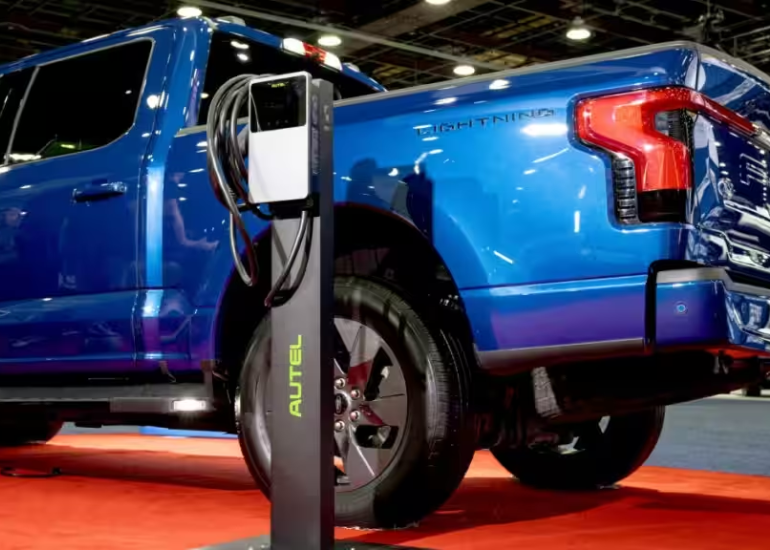Ford Motor Company is slashing production targets for the F-150 Lightning plug-in pickup truck — its trademark electric vehicle — by half for 2024 due to decreasing demand for battery-powered vehicles.
According to a company spokeswoman, the carmaker now plans to create 1,600 of the trucks each week in 2024 at its Dearborn, Michigan plant, down from a previous intention to produce 3,200 units per week. The OEM has been telling suppliers of the production cuts on a model that CEO Jim Farley originally described as “a test for adoption of electric vehicles” in America.
The move comes as Ford reduces its spending on electric vehicles by $12 billion and reduces the size of a battery factory it is building in Michigan by nearly half. Farley claims that the projected robust EV demand hasn’t materialized because potential purchasers are put off by high prices and patchy charging infrastructure. In addition, the manufacturer is reducing manufacturing of the electric Mustang Mach-E in Mexico and putting plans for a second battery factory in Kentucky on hold.
“We will continue to match production to customer demand,” Ford said in a statement.
Despite the Lightning enjoying its highest sales month ever in November, with 4,393 deliveries, the recent cuts come as a surprise. Lightning sales plunged 46% in the third quarter when the manufacturer closed its production for expansion and delayed vehicle delivery for “quality checks.”
It also comes as Tesla Inc. prepares to launch its much-anticipated Cybertruck, which is aimed at potential Lightning purchasers. The Lightning production drop was first reported by Automotive News.


